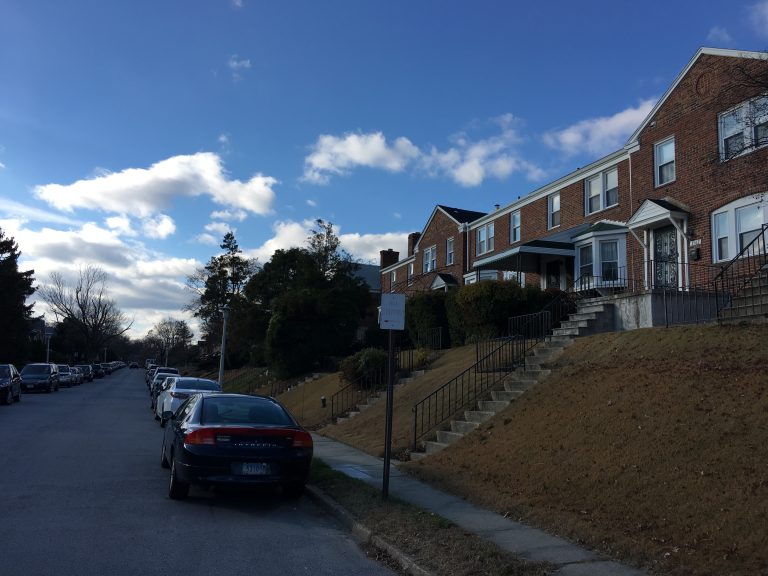By David Wilson
Growing up in 1970s West Baltimore, Marlo A. Hargrove saw a lot of crime and a lot of people going back and forth from prison. He also dealt with his own drug problems, selling drugs starting at age 10 and using them by age 12.
“After 30 years of living that lifestyle of destructive behavior, I decided it was time to do something to make a change,” said Hargrove.
Sitting atop a steep hill directly behind the Northwood Shopping center in Northeast Baltimore, on Sheffield Road, is one of the fruits of that change, a transition home for the formerly incarcerated run, along with two others, by the non-profit Hargrove co-founded, Freedom Advocates Celebrating Ex-Offenders (FACE).
Hargrove founded FACE in 2002, along with co-founder Father Sy Peterka. As Hargrove enters the home on Sheffield Road, he is met at the door and greeted like a member of the family by a couple of the residents, including 67 year old Ronald Robinson, who had just been doing some cleaning in the kitchen.
Inside, a massive TV plays SportsNation in the background. Art adorns the walls and lush plants have been strategically placed throughout the living room. This space is much more than just a transitional house for the formerly incarcerated, it is a home. A home where the five guys who are currently residing there can meet weekly just to talk, can speak with Hargrove about anything at any time, and a place from which they can progress and transition back into society at their own pace.
Since its founding fourteen years ago, Hargrove has grown FACE immensely, his eyes still set on further expansion. But right now, Hargrove is focused on helping the guys at Sheffield Road. FACE is an organization that seeks to provide a wide variety of services to men who, like Hargrove, have experienced conditions of substance abuse or incarceration.
Those services are often exactly what members of the reentry community need, such as housing, assistance acquiring employment, and a support program to address causes of recidivism. Before accepting a person into the home, the organization first interviews them prior to their release to let them know what FACE offers, and, more importantly, find out what the person is looking for.
Hargrove is constantly visiting courts and correctional facilities throughout Maryland to speak with prisoners, parole boards, case managers, and social workers, spreading the word about FACE. Should the initial intake process reveal that FACE may not be the best fit for a particular prisoner, Hargrove will attempt to harness the connections he has made in the course of his work to find the person an alternative program.
But the men that are accepted into FACE find themselves welcomed into a family environment.
“We incorporate a family structure here first,” said Hargrove. “We want them to feel the environment. We are a little family here amongst ourselves. Coming out, you may have burnt a lot of bridges with family and that’s a lot of times the reason you end up here.”
Hargrove has also organized the home in a way that communicates his goal of producing a comfortable family environment.
“This is the setting I want them to come into,” explained Hargrove. “People may think, ‘Ahhh, transitional homes are rinky dinky.’ Then, when they come in, they say, ‘Wow this is nice.’ But not only so they see this as nice, but for you to work towards getting something this nice for yourself and putting your key in your own nice door,” said Hargrove.
As Hargrove continues to expand and work towards helping women and children, he nonetheless remains part of the family at Sheffield Road.
“Speaking for me, without this type of situation, I would be on the street ’cause I don’t have any relatives and I’ve been incarcerated for 42 and a half years,” said house member Robinson. “So it’s definitely an advantage to me because it helps me to reintegrate into society, and I don’t have to rush but [can] learn on my own.”
This story was originally published by OnBckgrnd.com, on Dec. 7, 2016.

